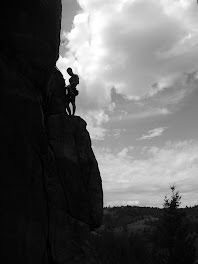15 Free Science Courses for Self-Learners
Open education is an excellent way to broaden your horizons and your knowledge of specific topics. There are many different colleges and universities that now offer open education options for self-learners. If you have an interest in science, you may want to explore some of these opportunities. You cannot earn a degree or college credit when you complete a course, but you can get a quality education without any out-of-pocket expense. Here are 15 free online science courses to try today:
Introduction to Neuroscience - The Massachusetts Institute of Technology (MIT) offers this free online course for self-learners who are interested in the science of cells. Course materials include 34 lectures, tests, and other study materials.
Elementary Astronomy - Elementary Astronomy is just one of the five online courses offered free by the College of Eastern Utah. The course is taught using lectures, videos, and other learning aids.
Introduction to Political Philosophy - Yale University offers this introductory political science course for free online. The course seeks to explain political philosophy through video, texts, and discussion.
Physics for Humanists - This free online course from Tufts University discusses facts and concepts of classical and modern physics. Students learn through lecture slides, handouts, tests, and supplementary material.
Cell Biology - The University of California, Berkeley provides webcasts of some of their most popular science courses. This free course includes 44 lectures and can be enjoyed as audio or video.
Introduction to Applied Statistics - The University of Massachusetts, Boston offers several free science courses, including this course on applied statistics. The 13-week course is designed for self-learners who are ready for graduate-level study.
Human Physiology - This free biology course from the University of Utah teaches students about a healthy human body.
Quantum Mechanics - Utah State University's free lecture course focuses on the foundations and techniques of quantum mechanics. The course includes more than 30 lectures in addition to other course materials.
Science and Society - This free online course explores the social and ethical issues that occur in the field of science. The course includes 30 hours of lectures as well as supplemental reading materials.
General Science - The University of Southern Queensland introduces self-learners to general science through this free online course. The course covers the basic concepts of science through a series of four modules and assessment tests.
Introduction to Biology - This introductory biology course from the Massachusetts Institute of Technology teaches the fundamentals of biochemistry, genetics, cell, and molecular biology.
General Ecology - This free Utah State University course focuses on the concepts and principles of ecology. The course provides audio lectures in addition to lecture notes.
Environmental Ethics - Canada's Capilano University offers this social sciences course to self-learners around the world. The course provides an overview of the philosophical study of humans' interaction with other species and the environment.
Nuclear Warfare - This free online science course from the University of Notre Dame uses lectures to teach students about nuclear warfare and weapons of mass destruction.
Science and Nature - This environmental course from The Open University explores plate tectonics and the changing of the Earth's face. The course takes approximately 15 hours to complete and is designed for intermediate learners.
Guest post from education writer Karen Schweitzer. Karen is the About.com Guide to Business School. She also writes for OnlineColleges.net.


